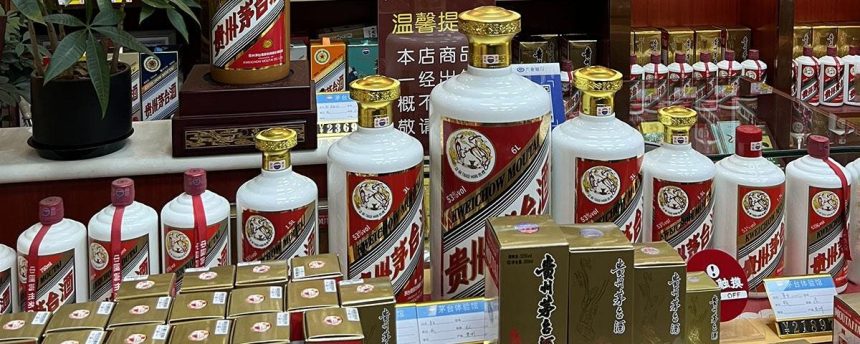Key News
Asian equities were mixed overnight on little news and light volumes following Friday’s high volume FTSE rebalancing and Triple Witching. The Philippines outperformed while China, Taiwan, and Korea were all off.
Friday’s US technology and semiconductor stock selloff weighed on technology stocks regionally. Tech-heavy Taiwan fell -1.89%. Meanwhile, the Hang Seng Index closed unchanged, at just above 18,000, after curtailing a -1.33% intra-day loss with an afternoon rally. The Hang Seng tech reversed a -2.21% loss to close lower by only -0.65%.
Today was the first net sell day in Hong Kong from Mainland investors via Southbound Stock Connect, after 23 net buying days in a row. Mainland investors sold a net -$271 million worth of Hong Kong-listed stocks and ETFs, though the selling was concentrated in the Hong Kong Tracker ETF.
Hong Kong’s most heavily traded stocks by value were Tencent, which fell -0.26%, Meituan, which fell -0.69%, ICBC, which gained +0.88%, CNOOC, which fell -0.88%, and Alibaba, which pulled a James Bond by gaining +0.07%. There were several analysts reporting that 618 e-commerce sales were not as bad as headlines suggest. Deep discounts might have lowered the value of goods sold, though I assume the number of goods sold increased significantly. There was some chatter about the US government potentially limiting US investment into China-based military technology companies, though there is really nothing new there.
Hong Kong-listed electric vehicle (EV) ecosystem stocks outperformed, including BYD, which gained +0.59%, Li Auto, which gained +1.59%, and Xpeng, which gained +3.23%. Meanwhile, NIO fell -0.45% after reports that the EU and China will meet on the former’s preliminary tariffs, highlighting a glaring error by Western media: failing to clarify that the tariffs were “preliminary”. After the close, the National Development and Reform Commission (NDRC) issued a press release supporting the EV sector, which also helped lift stock prices.
Mainland China had a very weak day as the Shanghai Composite declined -1.17%, closing below the 3,000 level and the Shenzhen Component fell -2.29%, as the market awaits policy announcements during the July’s Third Plenum. Today’s market action should be a wake-up call for policymakers as sentiment is clearly weak, with only 363 advancing stocks versus 4,661 declining stocks.
While we do not yet know for certain, there were indications of the National Team buying stocks today with their favorite ETFs seeing volumes increasing today like Friday. The ETF with the ticker of 510300, which is one of their favorites, had a volume today of 2 million shares versus Thursday’s 554,000 1-year average. Ticker 510310, another Mainland-listed ETF, had volume of 1.32 million versus Thursday’s 178,000 and a 1-year average of 629,000. 510050 had a volume today of 1.28 million, versus Thursday’s 760,000 and a 1-year average of 931,000. Meanwhile, mega caps and very large index weight Kweichow Moutai, which hit a 52-week low Friday, was off -3.87% intra-day, but closed +0.38%. How do you turn around a crisis of confidence? We might expect an amplification of the National Team intervening as a potential line in the sand has been drawn. Ultimately, reform and economic policy amplification is needed as domestic demand remains tepid.
The Hang Seng and Hang Seng Tech indexes closed unchanged and -0.65%, respectively, on volume that decreased -25.26% from Friday, which is 94% of the 1-year average. 113 stocks advanced while 345 stocks declined. Main Board short turnover declined -41.27% from Friday as 14% of turnover was short turnover (remember Hong Kong short turnover includes ETF short volume, which is driven by market makers’ ETF hedging). The value factor and large caps outpaced growth and small caps. The top-performing sectors were Health Care, which gained +0.95%, Utilities, which gained +0.84%, and Financials, which gained +0.55%. Meanwhile, Technology fell -1.58%, Industrials fell -0.56%, and Communication Services fell -0.45%. The top-performing subsectors were consumer durables, utilities, and banks. Meanwhile semiconductors, technical hardware, and household products were among the worst-performing. Southbound Stock Connect volumes were light as Mainland investors sold a net -$271 million worth of Hong Kong-listed stocks and ETFs, including Chian Construction Bank (CCB) and ICBC, which were small net buys. Meanwhile, the Hong Kong Tracker ETF was a large net sell.
Shanghai, Shenzhen, and the STAR Board fell -1.17%, -2.29%, and -2.54%, respectively, on volume that increased +12.53% from Friday, which is 83% of the 1-year average. 363 stocks advanced while 4,661 declined. Large caps and the value factor both fell less than small caps and the growth factor. Utilities and consumer staples both gained +1.13% and +0.28%, respectively, while Real Estate fell -2.23%, Technology fell -2.31%, and Communication Services fell -1.88%. The top-performing subsectors were power industry, liquor, and banking. Meanwhile, motorcycles, business services, and internet were among the worst-performing. Northbound Stock Connect volumes were moderate as foreign investors were small net sellers. CNY was off versus the US dollar. Copper and steel were both smoked.
New Content
Read our latest article:
How to Buy the Same Stocks as China’s Sovereign Wealth Funds
Please click here to read
Last Night’s Performance
Last Night’s Exchange Rates, Prices, & Yields
- CNY per USD 7.26 versus 7.26 yesterday
- CNY per EUR 7.79 versus 7.77 yesterday
- Yield on 1-Day 1.38% versus 1.40% yesterday
- Yield on 10-Year Government Bond 2.25% versus 2.26% yesterday
- Yield on 10-Year China Development Bank Bond 2.35% versus 2.36% yesterday
- Copper Price -1.50%
- Steel Price -1.20%
Read the full article here
















